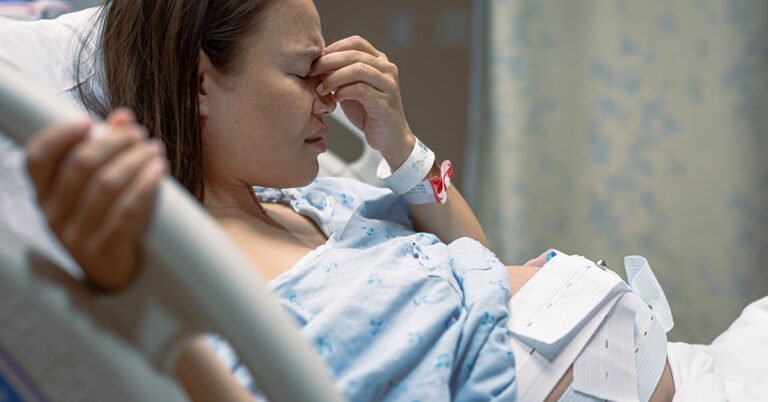India Batson Calls for Trauma-Informed Care in Medical Offices to Support Women Experiencing Pregnancy Loss
In a heartfelt plea, Georgia resident India Batson is urging medical offices to create separate waiting areas for patients dealing with pregnancy loss, a move she believes could significantly ease the emotional burden on grieving women. Batson’s call to action is deeply personal, rooted in her own painful experiences, and reflects a growing need for more compassionate, trauma-informed care in medical environments.
India Batson first shared her story in a candid TikTok video on March 15, recording herself from her car after a doctor’s appointment. In the video, Batson described the emotional difficulty of sitting in a waiting room filled with pregnant women while she awaited bloodwork results to confirm that her pregnancy had ended. “Sitting in that waiting room next to tons of pregnant women while you wait to go back just to get bloodwork to see if your HCG [level] is back to zero sucks, like it absolutely sucks,” she expressed, her voice raw with emotion. The video resonated with many viewers, shedding light on the often-overlooked need for sensitive care during such challenging moments.
At 29, Batson has endured multiple pregnancy losses, including a ruptured ectopic pregnancy and a miscarriage in February. Speaking with “Good Morning America,” she emphasized the importance of trauma-informed care in OB-GYN offices. “Both times, I felt that there were ways that we could improve … an already horrific experience by adding trauma-informed care to these OB-GYN offices after women learn that they’ve lost their baby and are going through the grieving process and just being more compassionate and empathetic to these women,” Batson explained. Her experiences underscore the urgent need for care that is not only medically sound but also emotionally supportive.
Pregnancy loss is a broad term that includes various types of losses, such as miscarriage and stillbirth. According to the Centers for Disease Control and Prevention, approximately one in 100 pregnancies ends in a stillbirth, with around 24,000 stillborn babies each year in the U.S. The American College of Obstetricians and Gynecologists estimates that miscarriages occur in about 10 out of every 100 known pregnancies, though the actual rate may be higher, as some losses occur before a woman is even aware of her pregnancy. These statistics underscore the significant number of women who could benefit from more thoughtful and compassionate healthcare environments.
Batson’s advocacy has struck a chord with many who have shared similar experiences. She noted that some OB-GYN offices already offer separate waiting areas or staggered schedules to better accommodate different patients. However, she hopes that her story will inspire more healthcare providers to adopt these practices widely. “I can’t speak for all women on what they would like. But it’s clear that there are ways that we can navigate this,” she told “GMA.” Batson’s vision is that her painful experiences might lead to positive changes in the healthcare system, providing comfort and care to other women facing the same heart-wrenching challenges.
India Batson’s call for separate waiting rooms for those experiencing pregnancy loss is more than a request for logistical change; it’s a plea for empathy and understanding in a time of profound grief. By advocating for trauma-informed care, Batson hopes to transform her personal pain into a force for positive change, ensuring that no woman has to endure the added burden of emotional distress in a space that should offer support and solace.
4o










